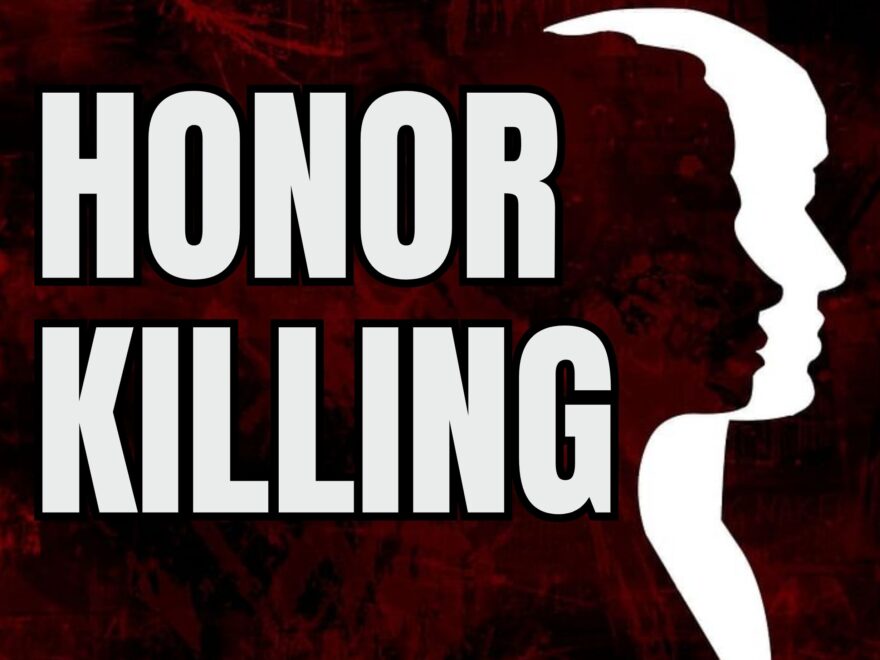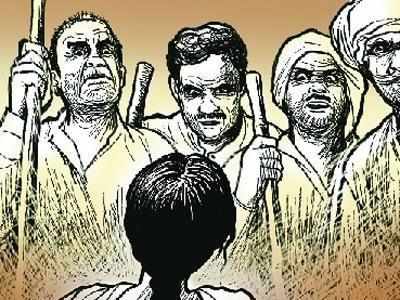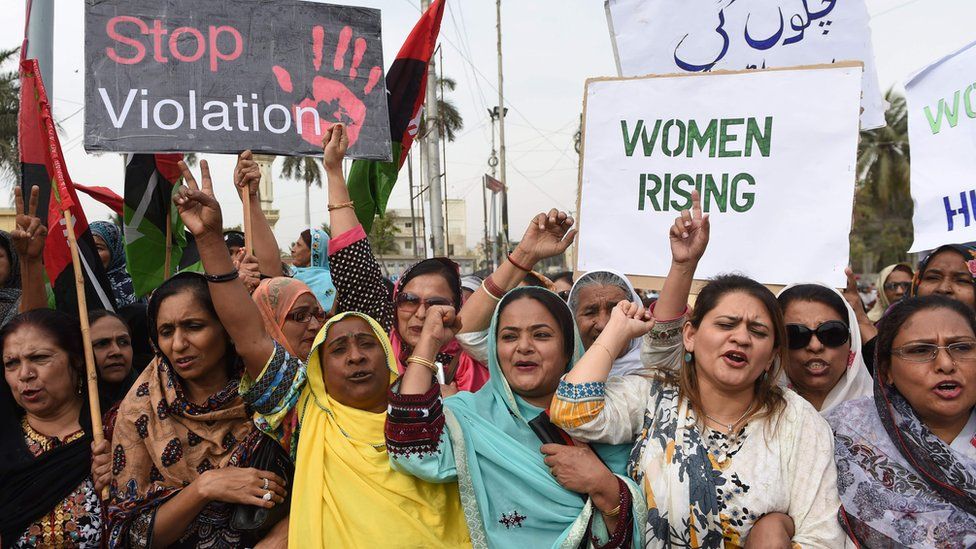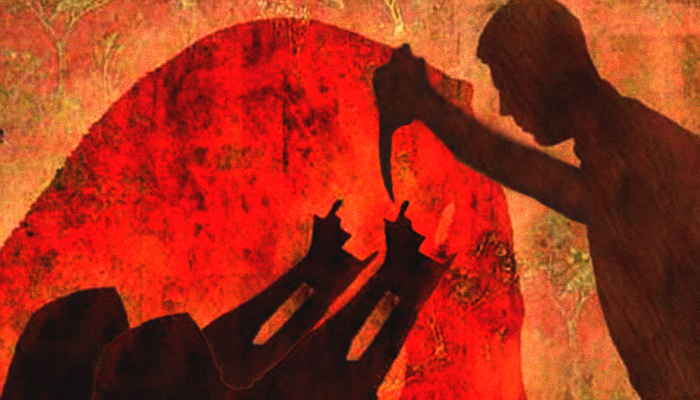Honor Killing
A Sociological Perspective
(Relevant for Unit 13: Challenges of social Transformation
(Violence Against Women) | Sociology Optional for UPSC)
Introduction
- Honour killing is a form of violence against women committed with the motive of protecting or regaining the honour of the perpetrator, family, or community. Victims of Honour violence are targeted because their actual or perceived behaviour is deemed to be shameful or to violate cultural or religious norms.
- Patriarchy and honour killings are closely linked, as honour killings are primarily found in highly patriarchal cultures. In this context Sylvia Walby has identified violence against women as a structure of patriarchy. She argues that male violence against women is so prevalent and recurring in society that it can be considered a social structure. In her view, this violence is not just isolated incidents but forms a pattern within society.
Patriarchy as basis for honour killing
- In these societies, women are seen as servants to their families, both physically and symbolically. Any violation of a man’s property, honour including a women choice of partner can result in severe punishment, such as honour-related violence.
- Veena Das contends that the cultural subjugation of women plays a significant role in perpetuating violence against them. She believes that the cultural norms and practices in society contribute to the violence against women.
- The commodification of women in the marriage market in patriarchal, patrilined caste society goes hand in hand with prescriptions for women’s behaviour and restrictions on their mobility. The entire complex constituting the construction of gender in caste society is a construction that radically devalues the status of women in these societies.
- Honour killing is more likely to occur in societies where there is a high degree of inequality between men and women. This inequality is often reflected in laws and customs that discriminate against women.
- Honour killing is also associated with certain cultural beliefs and practices, such as the belief that women’s sexuality must be controlled and that woman are responsible for maintaining the purity of their family’s honour. Honour killings falsely uphold the dignity and honour of a man’s name and family reputation, as women’s behaviour is seen as symbolizing the boundaries of what is acceptable in society.
- Leela Dube introduced the concept of women as gatekeepers of caste, suggesting that they play a role in maintaining the boundaries and purity of the caste system. She links this notion to instances of violence against women, positing that perceived transgressions of caste norms can result in severe consequences for women. For this reason the couples who have crossed the lines of caste and related norms become victim of honor killing.
- Kalpana Kannaviran believes that the single most important arena for the gendering of caste occurs in the arena of sexuality. The desire to regulate female sexuality has led to a considerable ritual preoccupation with female purity in the caste societies of Sri Lanka and India. Predictably, male sexuality is not ritualised in the same way.
- Honour killings are part of a spectrum of male violence against women. While honour killings are often associated with non-Western cultures, they are part of the universal spectrum of male violence against women practiced by all patriarchal societies, both Western and non-Western.
- The traditional authorities like Khap Panchayats which has authority to take decisions related to honour killings are also male dominated without any representation of women.
- Apart from religious motivation, honour killings are also propelled by societal norms, which are often influenced by male figures of authorit Also the legal relation action are not able to solve the issue of honour killing. Uma Chakarvorty contends that despite the existence of liberal legislation, the actual conditions for women often do not improve substantially. She argues that cultural norms and patriarchal values continue to dominate everyday life, undermining the effectiveness of legal protections for women.
Conclusion
In this complex web of patriarchal systems and honor killings, we see the urgent need for transformative change. It’s a call to challenge deeply ingrained beliefs, redefine cultural norms, and work collectively to eradicate the shadow of honor killings and the patriarchy that sustains them. It’s a reminder that progress requires not just legal reform but also a profound shift in societal consciousness, where the honor of individuals is valued above any narrow concept of family or community honor.
References
|
Additional References
|
Reference The Hindu
Related Blogs…
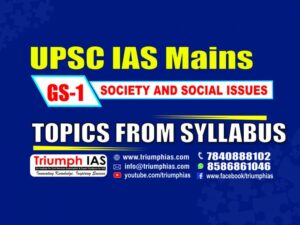 |
 |
Frequently Asked Questions:
-
Question: What is the relationship between honour killings and patriarchy?
Answer: Honour killings are closely linked to patriarchy, as they occur primarily in highly patriarchal cultures where women are seen as property and any violation of family honour, including a woman’s choice of partner, can result in violence.
2. Question: How does Veena Das explain the role of cultural norms and practices in perpetuating violence against women?
Answer: Veena Das argues that cultural norms and practices in society contribute to violence against women, as they devalue the status of women and restrict their autonomy.
3. Question: What role does caste play in honour killings, according to Leela Dube’s concept of women as gatekeepers of caste?
Answer: Leela Dube suggests that women in caste-based societies play a role in maintaining caste boundaries and purity, and perceived violations of caste norms can lead to honour killings.
4. Question: How does Kalpana Kannaviran highlight the gendering of caste and the regulation of female sexuality in caste societies?
Answer: Kalpana Kannaviran emphasizes that the gendering of caste is evident in the ritual preoccupation with female purity and the regulation of female sexuality, while male sexuality is not similarly ritualized.
5. Question: Are honour killings specific to non-Western cultures, or do they exist universally?
Answer: Honour killings are part of the universal spectrum of male violence against women practiced by both Western and non-Western patriarchal societies.
6. Question: Why do legal protections often fail to effectively address honour killings, as per Uma Chakarvorty’s argument?
Answer: Uma Chakarvorty contends that cultural norms and patriarchal values continue to dominate everyday life, undermining the effectiveness of legal protections for women.
7. Question: What is the key message conveyed in the conclusion regarding honour killings and patriarchy?
Answer: The conclusion emphasizes the need for transformative change, challenging deeply ingrained beliefs, redefining cultural norms, and eradicating honour killings and the patriarchy that sustains them. It calls for valuing individual honour over narrow concepts of family or community honour.
GS Related Practices Questions…
To master these intricacies and fare well in the Sociology Optional Syllabus, aspiring sociologists might benefit from guidance by the Best Sociology Optional Teacher and participation in the Best Sociology Optional Coaching. These avenues provide comprehensive assistance, ensuring a solid understanding of sociology’s diverse methodologies and techniques.
META TAGS:
Honor Killing UPSC, Honor Killings, Violence Against Women, Cultural Subjugation, Gender Violence, Caste System, Patriarchal Norms, Social Structures, Gender Inequality

Why Vikash Ranjan’s Classes for Sociology?
Proper guidance and assistance are required to learn the skill of interlinking current happenings with the conventional topics. VIKASH RANJAN SIR at TRIUMPH IAS guides students according to the Recent Trends of UPSC, making him the Best Sociology Teacher for Sociology Optional UPSC.
At Triumph IAS, the Best Sociology Optional Coaching platform, we not only provide the best study material and applied classes for Sociology for IAS but also conduct regular assignments and class tests to assess candidates’ writing skills and understanding of the subject.
Choose The Best Sociology Optional Teacher for IAS Preparation?
At the beginning of the journey for Civil Services Examination preparation, many students face a pivotal decision – selecting their optional subject. Questions such as “which optional subject is the best?” and “which optional subject is the most scoring?” frequently come to mind. Choosing the right optional subject, like choosing the best sociology optional teacher, is a subjective yet vital step that requires a thoughtful decision based on facts. A misstep in this crucial decision can indeed prove disastrous.
Ever since the exam pattern was revamped in 2013, the UPSC has eliminated the need for a second optional subject. Now, candidates have to choose only one optional subject for the UPSC Mains, which has two papers of 250 marks each. One of the compelling choices for many has been the sociology optional. However, it’s strongly advised to decide on your optional subject for mains well ahead of time to get sufficient time to complete the syllabus. After all, most students score similarly in General Studies Papers; it’s the score in the optional subject & essay that contributes significantly to the final selection.
“A sound strategy does not rely solely on the popular
Opinion of toppers or famous YouTubers cum teachers.”
It requires understanding one’s ability, interest, and the relevance of the subject, not just for the exam but also for life in general. Hence, when selecting the best sociology teacher, one must consider the usefulness of sociology optional coaching in General Studies, Essay, and Personality Test.
The choice of the optional subject should be based on objective criteria, such as the nature, scope, and size of the syllabus, uniformity and stability in the question pattern, relevance of the syllabic content in daily life in society, and the availability of study material and guidance. For example, choosing the best sociology optional coaching can ensure access to top-quality study materials and experienced teachers. Always remember, the approach of the UPSC optional subject differs from your academic studies of subjects. Therefore, before settling for sociology optional, you need to analyze the syllabus, previous years’ pattern, subject requirements (be it ideal, visionary, numerical, conceptual theoretical), and your comfort level with the subject.
This decision marks a critical point in your UPSC – CSE journey, potentially determining your success in a career in IAS/Civil Services. Therefore, it’s crucial to choose wisely, whether it’s the optional subject or the best sociology optional teacher. Always base your decision on accurate facts, and never let your emotional biases guide your choices. After all, the search for the best sociology optional coaching is about finding the perfect fit for your unique academic needs and aspirations.
To master these intricacies and fare well in the Sociology Optional Syllabus, aspiring sociologists might benefit from guidance by the Best Sociology Optional Teacher and participation in the Best Sociology Optional Coaching. These avenues provide comprehensive assistance, ensuring a solid understanding of sociology’s diverse methodologies and techniques. Sociology, Social theory, Best Sociology Optional Teacher, Best Sociology Optional Coaching, Sociology Optional Syllabus.
Best Sociology Optional Teacher, Sociology Syllabus, Sociology Optional, Sociology Optional Coaching, Best Sociology Optional Coaching, Best Sociology Teacher, Sociology Course, Sociology Teacher, Sociology Foundation, Sociology Foundation Course, Sociology Optional UPSC, Sociology for IAS,
Follow us :



Find More Blogs…
| Compare and contrast Karl Marx’s and Max weber’s | Karl Marx- Historical Materialism |
| Talcott Parsons : Social system | Scope of the subject and comparison with other social sciences |

